
November 2025
Let's Get Real: AI
As the twelfth LGR cohort nears its completion Jocelyn Burnham, Stephen Miller and Alec Ward reflect on learnings so far.
Book now for our Let's Get Real Conference 2026: AI
We publish research, think pieces and articles about the challenges and opportunities facing our sector.

November 2025
As the twelfth LGR cohort nears its completion Jocelyn Burnham, Stephen Miller and Alec Ward reflect on learnings so far.
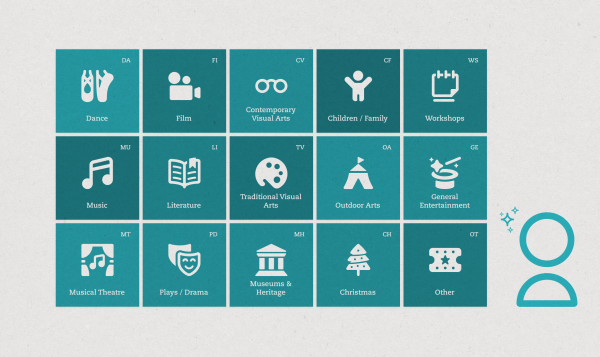
September 2025
This month we share why the sector needs data it can trust in the age of AI, new audience trends by artform and first tickets for our next Let's Get Real Conference.

September 2025
Stephen Miller, our Chief Technology Officer, is a firm believer in Data4Good. Here he explains why AI offers a perfect example of why we should focus on data.

September 2025
Lots of interesting stuff in this month's issue, from marketing mishaps to new AI tools.
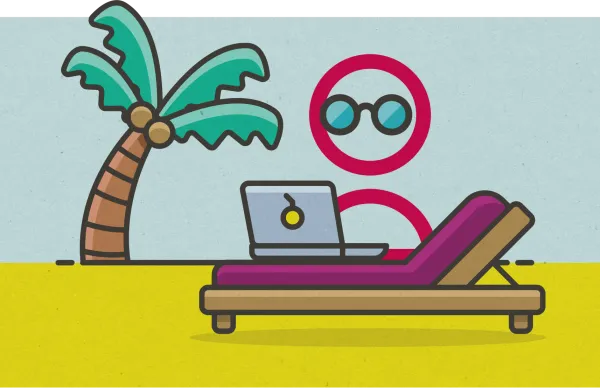
August 2025
This month we share our latest thinking on AI and how we've been working on some new innovations for our Data Trust, as well as the final report from our research on Private Investment in Culture.

August 2025
The latest digital news, inspiration, tips and guidance for the arts, culture, museums and heritage world.
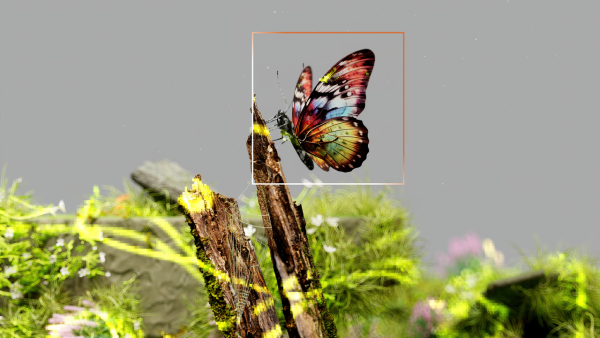
August 2025
Safeguarding Shared Data in a Decade of Trust

July 2025
Including... Invitation to join our free one-to-one surgery sessions at the AMA Conference 2025, Report from the British Council on Digital Cultural Heritage, and News about Instagram posts featuring in Google Search results from this month.

June 2025
The Audience Agency’s Year of ethical AI exploration

June 2025
This month we share our latest feature article for Arts Professional, our journey so far with ethical AI exploration and an opportunity for you to have your say on the challenges and opportunities for innovation and R&D in the creative and cultural sector.

June 2025
Audience development is 35 this year. With standstill funding and cultural devolution on the horizon, The Audience Agency’s Anne Torreggiani says the case for regenerative audience development has never been stronger.
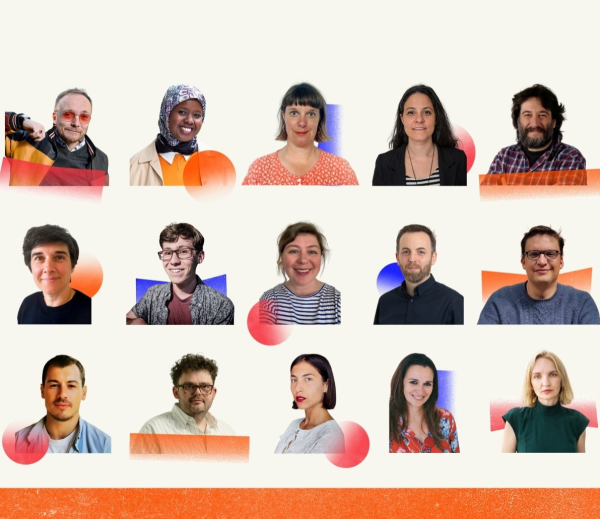
June 2025
Inaugural Fellowship to connect and support arts leaders for social change and community engagement

June 2025
Including... Invitation to participate in the survey on innovation and R&D in the creative and cultural sector, Example from the National Youth Theatre of using Copilot during improv sessions, and Interesting read on "Why escapism is the new marketing currency".

May 2025
This month our CEO Anne Torreggiani writes about the power of peer learning, we learn how far audiences travel and share the latest update from the NCDO (Towards a blueprint for a National Cultural Data Observatory) project.

May 2025
Including... Our Consultant Director, Anra Kennedy's talk at last year's Museums + Tech conference, An interesting article on how using pleasantries in ChatGPT prompts are wasting millions of dollars and The National Gallery's 200 Paintings for 200 Years project.
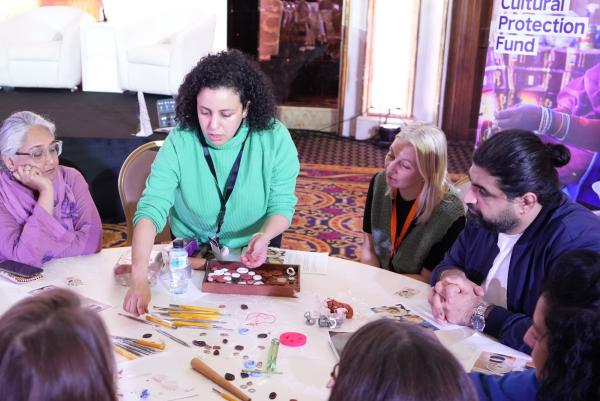
May 2025
Building on our recent collaborative action research, our CEO, Anne Torreggiani, takes a deeper look at the power of peer learning to tackle wicked problems and navigate uncertain times.

April 2025
Including... The 2025 Digital Culture Awards winners announcement, an article by Arts Professionals on a digital strategy for the UK cultural sector, and the new trend in OpenAI's new Studio Ghibli-inspired image generator

March 2025
Including... Summary of the HAMLET project by Stephen Miller, the first newspaper to publish an entirely AI-generated edition and a research paper exploring the challenges of AI adoption

March 2025
This month we take a look at the audience legacy of COVID, vulnerability in AI and the value of digital.

March 2025
Since 2024, The Audience Agency has partnered with Cardiff University and Lancaster University to offer the open-source data analysis tool FreeTxt to all Audience Answers data users as external data analysis functionality.

March 2025
CREATE PLACE Heritage & Digital awarded grant by The National Lottery Heritage Fund to support heritage and cultural leaders involved in the next phase of heritage-led regeneration.
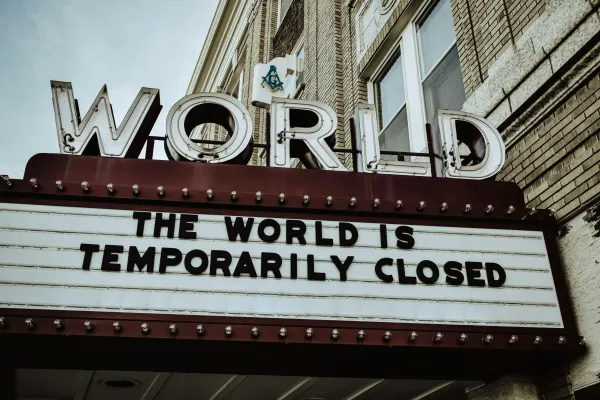
March 2025
Although the pandemic brought better insight, the picture is complicated by the effects of the poly-crisis. Oliver Mantell draws out key trends to help navigate unpredictable tides.

March 2025
With our partners MyCake, we’re excited to be working on the 2025 edition of Arts Council England’s Private Investment in Culture Survey.

March 2025
Including... How to register your interest in "Let's Get Real: AI", the Charity Digital Skills survey for non-profits, and an AI playbook for civil servants by the government.

March 2025
Jocelyn Burnham talks about her views on AI, innovation and vulnerability.
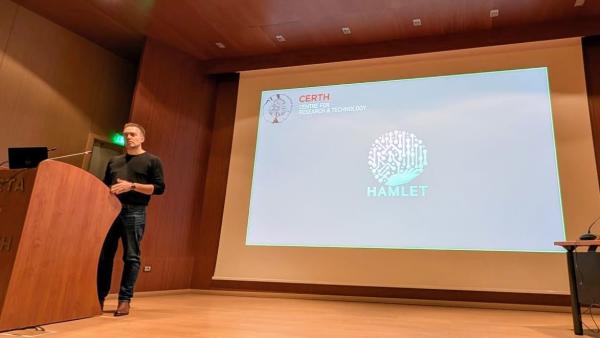
February 2025
Our CTO, Stephen Miller, talks about the kick-off of an EU Horizon project with a mission to democratise access to generative AI and foster a sustainable digital transition for Europe’s CCIs.
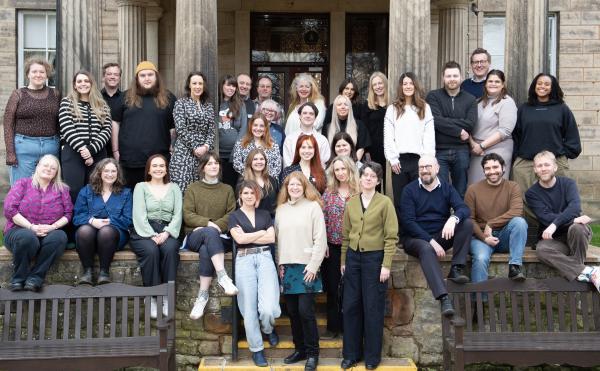
February 2025
Including... Let’s Get Real: Value Report, Launch of China's DeepSeek as a competitor to OpenAI's ChatGPT, and Announcement of the 2025 Digital Culture Awards Shortlist.

January 2025
To better understand current R&D activity in the sector, The Audience Agency are working in collaboration with Arts Council England (ACE) and the sector to gather and map intelligence.

January 2025
Including... Let's Get Real Conference, BBC's list of tech to watch out for in 2025 and Exploring the importance of digital media authenticity in cultural heritage
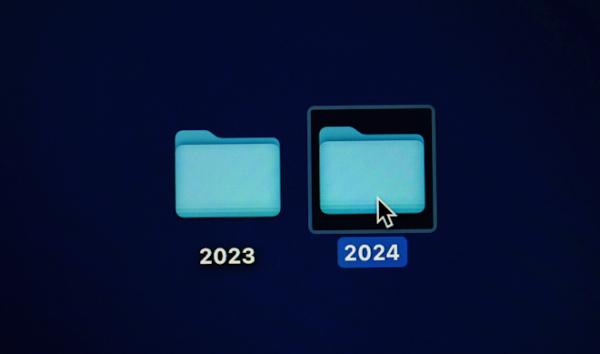
January 2025
Including... Getting your tickets to the Let's Get Real conference, News about a 48% increase in Google emissions driven by AI, and A case study on why it's important to edit your AI-generated content.

December 2024
With financial pressures mounting, staying true to social purpose can be a challenge for cultural organisations. Our team give a shout out to those who are finding a way.

December 2024
Including... 2024 Online Nation report by Ofcom, Useful research from Storythings and One Further's recent 'Discovering Online Collections' report.

November 2024
This month we take a look at what people say about gift vouchers and memberships as presents and the value of action research.
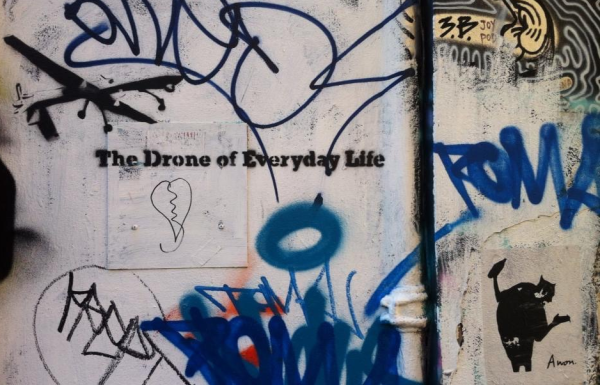
November 2024
Oliver Mantell responds to a recent debate on the use of AI in poetry and suggests that there may be more to read into it than meets the eye...

November 2024
The Audience Agency embark on major new research project for the touring sector

November 2024
A fundamental truth about change is that it’s rarely technology that’s the challenge, it’s the people. Here, Anra Kennedy talks about the value of peer learning and action research.

November 2024
Including... "Let's Get Real Conference" tickets are now available, Newly launched The Living Museum and Migration of Sketchfab to Fab

October 2024
Announcing the kick-off of our new project with Centre for Cultural Value and MyCake
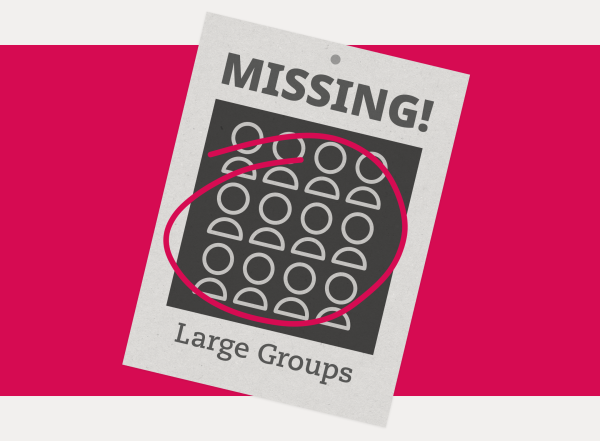
October 2024
This month for TEA Time News ☕, we take a look at how party sizes for bookings have changed, current audience attitudes and engagement levels as well as some tips for navigating AI.

October 2024
As chief technology officer for The Audience Agency, Stephen Miller is often asked questions about technology and AI. Here are the most common AI ones – and his responses to them.
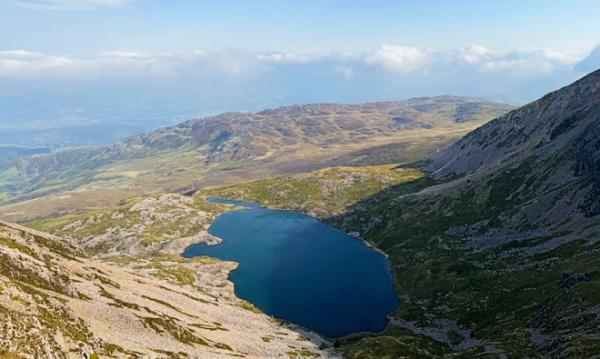
October 2024
Including... Insightful update focusing on a long tail SEO strategy by Trish Thomas, News about the Internet becoming the UK's most popular news source, and The first person to reach one billion social media followers.

September 2024
Including... A look at the National Gallery's digital strategy, Article by Rob Cawston on how National Library of Scotland are approaching AI and How the Bluesky is replacing X, since it's ban in Brazil.
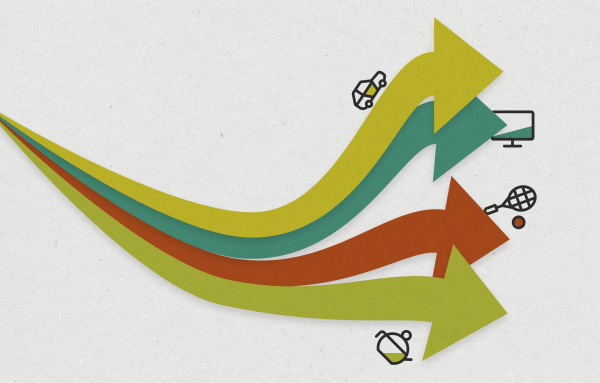
August 2024
TEA Time News ☕ August, we take a look at how the profile of audiences has changed and how AI can benefit the arts and cultural sector.
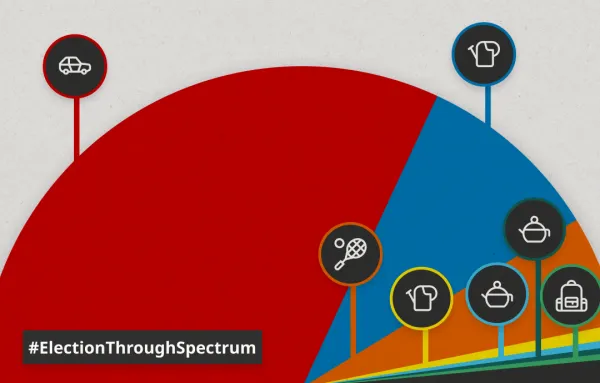
July 2024
This month for TEA Time News ☕, we take a look at the election through the lens of Audience Spectrum, and insights from our Cultural Participation Monitor show us how the use of social media and digital varies between Spectrum segments.

July 2024
All parties seem to agree that devolution is a good thing but the details about how culture will feature are scant. Anne Torreggiani and Patrick Towell discuss why and how we need to build the evidence base.

July 2024
Including... Latest video of our TEA Break event, An interesting look at the future of Google and search and The Guardian article on How the general election played out on TikTok.

July 2024
The impact on organisations

June 2024
Including... Google's experimentation with AI within search, The Museums in the Metaverse project, where visitors able to explore cultural assets in virtual XR worlds, and in-depth discussion on QR code usage.
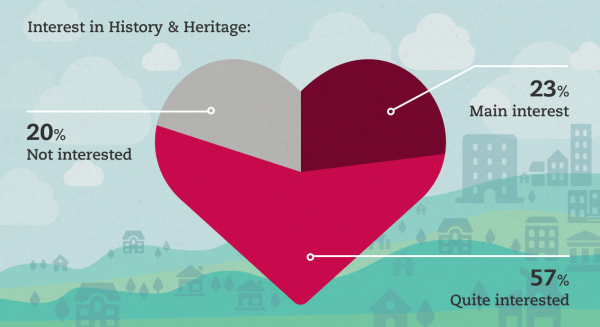
June 2024
This month insights from our Cultural Participation Monitor looked at interest in and attitudes towards history and heritage.
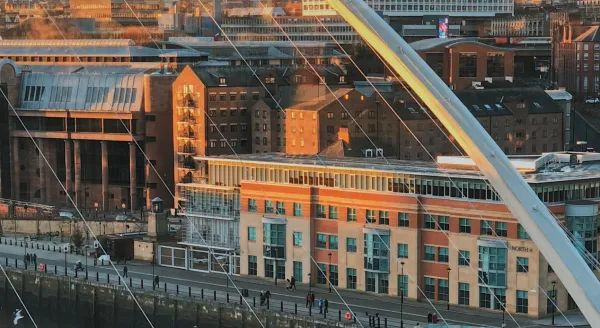
May 2024
Welcome to Creative Places, our new quarterly newsletter bringing you all the latest placed based news, inspiration, tips and guidance for arts, culture, museums and heritage.

May 2024
Including... Microsoft programme called AI for Cultural Heritage, TikTok benchmark report for 2024 by RivalIQ, and 'Nature's Confetti', a new immersive experience at Outernet London.

April 2024
Including... UK Trial of Search Answers with AI conducted by Google, Interesting interview with Martin Poulter and the Return of the Neopets.
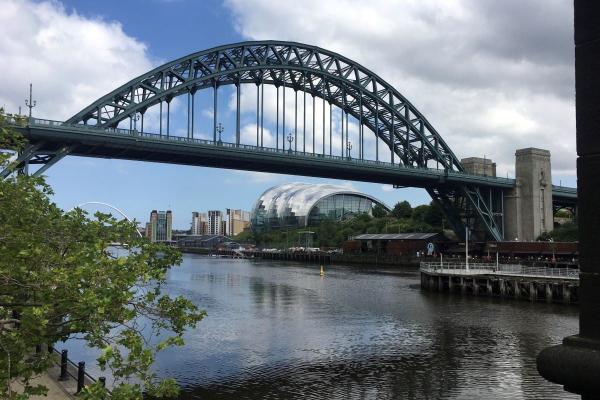
March 2024
Cara Pickering and Sarie Mairs Slee examine how place-based collaboration can support innovative, creative-led regeneration of our towns and cities.
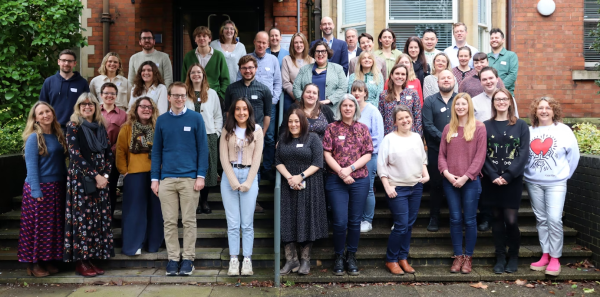
March 2024
Why our Let's Get Real cohort programme offers a vital moment for reflection and learning.

March 2024
The Audience Agency and Praxis & Culture to Evaluate British Council Spotlight on Culture 2024

March 2024
Including... The Overview of the Royal Institution's social media platform achievement, Charity Digital Skills Report 2024 and Interesting look at Temu's marketing approach

March 2024
ACE publish new report by DHA and The Audience Agency

February 2024
Including... Recently released Global Digital Report 2024, Photos from the Wildlife Photographer of the Year and Launch of a platform that could potentially replace Twitter.

January 2024
New services for local and combined authorities, built environment professionals, creative and cultural leaders and place-based compacts, consortia and partnerships.

January 2024
Our CEO Anne Torreggiani and team members here at the Audience Agency share our predictions and top tips for success for 2024.

January 2024
Anra Kennedy considers the role digital culture and technologies play in wellbeing

January 2024
Including... The Role Digital Culture and Technologies play in Wellbeing by Anra Kennedy, Bloomberg Philanthropies' Digital Accelerator programme and 3D tour of the Roman cellar dig site at Leicester Cathedral.

December 2023
Last week, We have announced a merger with fellow sector support charity, Culture24. Here, CEO Anne Torreggiani explains why we have joined forces and how our work together will support a more future-focused sector.

December 2023
Including... Let's Get Real project, Usage of AI tools in a workplace and V&A’s new Mused platform for a young audience.

November 2023
Joining forces to support a future-focused sector.

November 2023
How our consultants are engaging with capital projects and the heritage sector from end to end - establishing baseline insights, through the development phase and consultation to delivery and evaluation.

November 2023
Generative AI is here to stay and the arts and culture sector should be helping to shape it, says Richard Leeming.

October 2023
The Audience Agency's essay for the British Council’s Cultural Heritage for Inclusive Growth pilot programme has been published.

October 2023
A new resource is now available to help arts and cultural organisations understand and support everyday creativity.

October 2023
To explore some of the benefits of partnership work from a teacher’s perspective we spoke to Liz Philips, a former Head of Creative and Performing Arts.

October 2023
£200m of funding has been announced by the National Lottery Heritage Fund following work done by The Audience Agency and MyCake.

October 2023
The value of panel and omnibus surveys exploring the whole population regardless of cultural engagement.

October 2023
Culture is not the ‘cherry on the cake’ but something more fundamental and vital to society.

September 2023
Oliver Mantell examines the many benefits of working in close collaboration with university partners on developing skills in the arts sector.

August 2023
Read our extensive and action-focused evaluation of the UK/Australia Season, led by the British Council and the Australian Department of Foreign Affairs and Trade (DFAT), which aimed to reframe, refresh and re-energise the relationship between Australia and the UK through cultural exchange.

August 2023
Including...Ofcom's report on adults' media use, Wallace's Uber game and the 'unhinged social media manager'.

August 2023
Taking a stance on climate change and social justice will be increasingly important for arts and cultural audiences, as people’s attitudes towards and expectations of the arts evolve in response to societal challenges.

July 2023
Colleagues from all different departments of The Audience Agency reflect on a conference that very much focussed on taking the pulse of the sector’s changing approach to, and understanding of, its future audiences...

July 2023
The government has announced nearly £11m of funding to help grow the creative economy in England, but there are only a few days to apply for the cash...

July 2023
Following a competitive tender process, The Audience Agency has been appointed to deliver the evaluation for Kala Sangam's Capital and Arts & Heritage Project.

July 2023
Including...Twitter's rebrand, Barbie movie marketing and the continuing conversation around AI.

July 2023
Including...a spotlight on Threads, the upcoming AMA Conference and a game about making paperclips.

July 2023
Audience Spectrum 'tagging' is now fully automated for Spektrix users.

June 2023
Including...social media pixels, protests on Reddit and Royal Armouries video game collaborations.

June 2023
Including...Apple's new mixed reality headset, AHRC's latest funding opportunities and an immersive experience of early medieval Wessex.

June 2023
Young evaluators of South Asian heritage who have been working with us on the 'Our Shared Cultural Heritage' project discuss the unique perspectives and learnings they have brought to and taken from the experience.

June 2023
We've added a few fresh faces to the Co-creation and Participation team since last we all spoke, so let's get to the Who, What, Where, Why and How of them all...

June 2023
Since June 2022, we've been evaluating the NLHF-funded Digital Dig project, which engages new audiences with the RHS through participatory video.

May 2023
Co-creation and Participation Consultant, Natelle Morgan-Brown, reflects on the AMA's Inclusivity and Audiences Day, which is now in its 5th year of championing Equality, Diversity and Inclusion (EDI) best practice from across the arts and cultural sector.

May 2023
CEO Anne Torreggiani discusses how our recent research into everyday creativity reveals new ways cultural organisations could serve wider communities. But making the most might need a radical rethink.
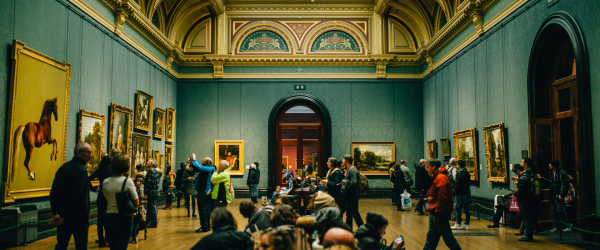
May 2023
Including...Montana's TikTok ban, how to write good microcopy and a breakdown of dark patterns.

May 2023
Our Director of Evidence and Insights recounts some of the provocations offered by a recent trip to Tixly's Client Conference in Iceland, where talks spanned from the evolution of ticketing over the millennia to the technology that is shaping its future.

May 2023
Including...the release of the Arts Marketing Association 2023 conference programme, Bluesky and how museums use tone of voice.

May 2023
Head of Product Growth and Customer Success, Chris France, shares a few moments from the Ticketing Professionals Conference that particularly piqued his interest.

May 2023
Most people in the sector don’t need to be analysts but they do need the insight to make changes that speak to audiences. Here, Anne Torregiani shares how this thinking has shaped The Audience Agency’s next-generation suite of audience insight tools.

April 2023
Re-designed for and with cultural organisations, Audience Answers builds on the 10-year development and success of Audience Finder Data Tools in the field to focus more than ever on putting insights into action, responding to individual user needs, and facilitating peer-to-peer collaboration.

April 2023
Including...Twitter's verification drama, the Collections Trust's new toolkit and cool Ordnance Survey maps.

April 2023
Including new Substack features, Barbie Movie memes and an open letter calling on AI labs to pause development.

April 2023
CEO Anne Torreggiani sows the seeds for our newly launching suite of Audience Answers data and insight services, designed with and for arts, culture and heritage organisations.

March 2023
Latest data from our nationwide survey warn of compounding threats to arts and culture as cost-of-living arrests Covid-19 recovery.

March 2023
Including...the Digital Culture Awards 2023, Google Trends and lofi girl.

March 2023
We have seen international collaboration working at its best, as evaluators of projects with true cooperation at their heart.

March 2023
Cultural variance matters when it comes to international research and evaluation.
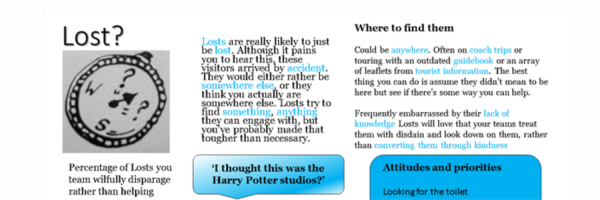
March 2023
Including...the Museum of Forward Planning's new book, Twitter outages and 2.5D animation explained.

February 2023
Including...what's going on in the world of AI, and the 2023 Digital Culture Network Awards longlist.

February 2023
Including...Twitter charging for access to its API and where Gen Z are spending their time online.

January 2023

January 2023
Including...Culture24's Let's Get Real programme, the London Underground quiz and Indie Interesting Websites.

January 2023
The relationship between a place’s local government and its creative economy is an entirely (and rightly) symbiotic one, argues cultural sector consultant and Southwark Councillor, Richard Leeming.

January 2023
Including...the Digital Culture Network Awards, Twitter's new verification ticks and Brünnhilde.

December 2022
As the year winds down under a blanket of snow, we're taking a look back at some of the more important messages that emerged from the comeback year gone by, and ahead to how we can address them in the new.

December 2022
Including...the top iphone app of 2022, Apollo Magazine Awards and looking ahead to 2023.

December 2022
Research rings warning bells about the potential effects of the cost-of-living clouds rolling in across all four nations. Anne Torreggiani asks how we can brace for impact and support communities?

December 2022
Including...the latest Twitter news, ONS Census Data and the release of Wayfinder.

November 2022
Our Head of Digital asks: What exactly is happening? What is likely to happen? How we might we fill the void Twitter’s destruction leaves... And do we even need to?

November 2022
Including...a Twitter Special, David Hockney's immersive exhibition and the publication of the 2022 Consumer Digital Index.

November 2022
Anne Torreggiani offers commiserations and support to fellow organisations who will not be in ACE's funded Portfolio from next year, but reflects on how the shift frees The Audience Agency up to focus more on what really matters to our community.
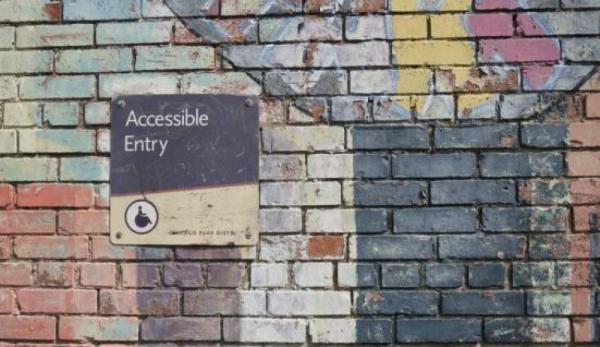
November 2022
We all need to work harder to ensure that culture is fully accessible to disabled audiences. When we do, there are positive spinoffs for everyone, argues Richard Leeming.

October 2022
Including...Museums Computer Group Conference programme, OneFurther's Content Report, and analysing the architecture of Disney films.

October 2022
ACE is taking forward the findings from our feasibility study into a national access scheme for disabled audiences and testing them with the ticketed arts sector.

October 2022
Including...the metaverse, Neeva and the importance of digital skills.

September 2022
On what felt like a very strange first day of the working week, it was great to head along the Eccles line to the Lowry for the Ticketing Professionals Conference TPC2022½, with Louisa Hardinge & Rimi Solloway.

September 2022
Including...the Museums+Tech 2022 conference, how the Government Digital Service are preparing for Google Analytics 4 and Trombone Champ.

September 2022
Including...Twitter testing their Edit button, AI-generated art and some memorable museum rebrands.

August 2022
Including...Oracle auditing TikTok, Amazon's 7 rules for writing memos and Seb Chan's published keynote from ICOM 2022.

August 2022
Including...the NHLF Strategy Survey, ArtUK's launch of Tagger and an episodic story of the alphabet.

August 2022
Colleagues from all different departments of The Audience Agency reflect on the common themes of curiosity, connectedness and embracing change that particularly struck them during this year's big return to AMA.

August 2022
Including...weird medieval guys, Instagram trying to be more like TikTok and Culture24's upcoming workshops.

July 2022
The Heritage Innovation Fund is a pilot initiative for experimenters, collaborators and learners from across all parts of heritage, across the UK. They're looking for people who want to play a leading role in pioneering solutions for making the heritage workforce fit for the future.

July 2022
Including...the release of the Charity Digital Skills report, a new game based on the census and NASA's masterclass use of alt text.

July 2022
The Audience Agency recently completed a piece of research for Towards a National Collection to understand what users might want and need from a future national collection digital infrastructure.

July 2022
The simple answer is: yes. The internet has already defined and continues to redefine cultural participation, and in a lot of cases that is happening without arts and cultural organisations.

June 2022
Richard Leeming reflects on a wide range of fascinating and impactful speakers' real world examples of how they’re delivering transformative schemes in their local areas.
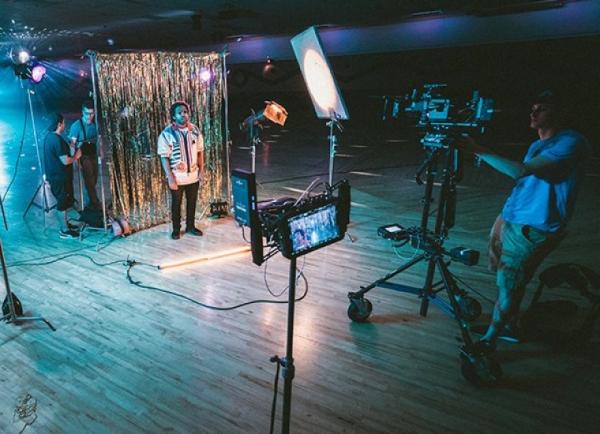
June 2022
We need to hone our skills in human-centred design, over and above those in tech or data, to make the most of post-pandemic digital/live appetites, argues Anne Torreggiani.

May 2022
Historic England recently commissioned The Audience Agency and our partners MyCake to start establishing the size of the sector using publicly available data sets.

May 2022
New data shows that arts and cultural engagement has greatly increased, but some groups remain cautious about live events, whilst the cost-of-living crisis will impact attendance, and the preference for home working makes local events more popular.

May 2022
12 new policy recommendations, devised to support the creative and cultural sector recover and rebuild in the wake of the Covid-19 pandemic, presented to senior government and sector policy makers.

May 2022
Nancy Sheterline and Chris France reflect on the resilience and optimism on display at Cardiff's first large in-person gathering of Welsh cultural sector professionals in 2 years.

May 2022
The pandemic highlighted an urgent need for better data to describe the cultural sector – Now the government has published solutions identified by The Audience Agency and financial benchmarking specialists MyCake.

April 2022
As both patterns of engagement and cultural organisations’ needs are changing, Audience Spectrum is evolving to meet them.

March 2022
Including... moving over to Google Analytics 4, Pokemon Go, and One Further's Cultural Content Survey 2022.

March 2022
The Audience Agency, in partnership with the University of Sheffield, is advertising two funded PhDs as part of the university's Centre for Doctoral Training on Data Analytics and Society.

February 2022
Centre for Cultural Value report shows crisis-hit UK cultural sector at a crossroads, as new research reveals profound impact of Covid-19 on workforce, audiences and organisations.

November 2021
The Audience Agency research shows that weaker panto sales threaten this festive season (and beyond) for theatres

November 2021
The Audience Agency and Culture24 commissioned to carry out user research for the Towards a National Collection programme

November 2021
Research suggests that organisations are feeling an increased urgency to deepen connections with the communities they serve, but how can they make the most of this momentum?
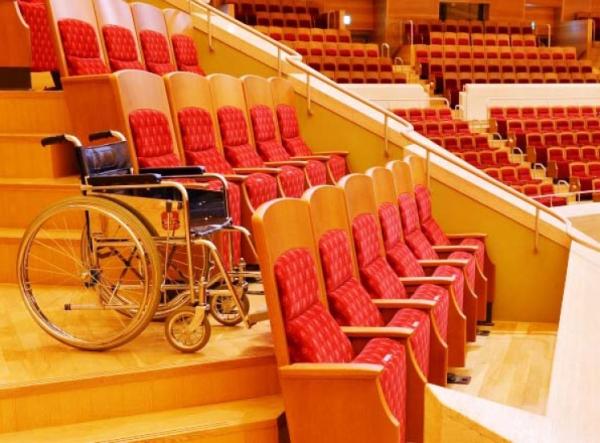
September 2021
While anxiety about attending events remains high amongst disabled people, the COVID online content boom has given rise to revolutionary opportunities that could improve access for good.

September 2021
Each project will be awarded a grant, training and mentoring as they form the centrepiece of The Audience Agency’s Digitally Democratising Archives project thanks to funding from DCMS and the National Lottery, as part of The National Lottery Heritage Fund’s, Digital Skills for Heritage initiative.

September 2021
Including Twitter's new $uper Follows, the Barbican's use of Shorthand for digital storytelling and art history on TikTok.

June 2021
Bringing communities and archives together using digital technology

June 2021
The Audience Agency launches the Build Back Creatively toolkit, a new and free resource to guide local councils through how to harness the creative industries to drive local, social and economic post-pandemic recovery.

June 2021
Lucie and Ashleigh shares some useful resources and good reads for learning, engagement and participation professionals.
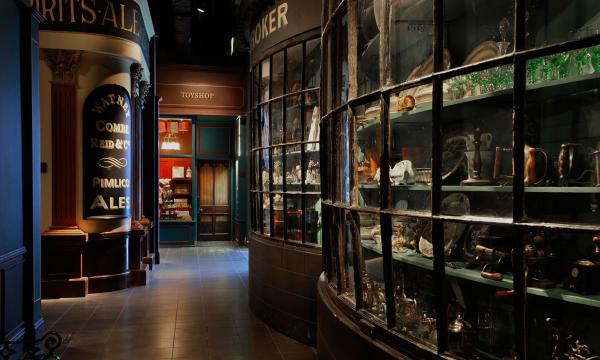
June 2021
From diversifying the workforce, to co-creating programming and content. A case study from the Museum of London

June 2021
How to become a community-led organisation. Interview with Liz Power, Director of London Museum of Water and Steam.

April 2021
We have recently begun work with an external reference group to create a set of Anti-Racist Research Guidelines for use in the cultural sector.

March 2021

March 2021
The Audience Agency has been appointed to research and write a report entitled 'The future of cross border cooperation in the Arts' by the ARINS project.

March 2021
Ashleigh Hibbins, Learning & Participation Consultant, shares some useful resources and good reads.

March 2021
Key insights for learning and participation practitioners.

March 2021
We talk to Bradley Hemmings about the Greenwich Dockland International Festival's reimagining of their participation and engagement programme through the pandemic.

February 2021

January 2021
The Audience Agency has been appointed by the British Council to undertake evaluation of its Digital Collaboration Fund, which supports UK and overseas cultural partnerships to develop digitally innovative ways of working together.

December 2020
We’re still in a storm but the flowers continue to grow. Here we outline some of the initiatives we are involved in that are carrying on through adaptation and resilience.

December 2020
Different parts of the world exhibit different biases and levels of trust when it comes to accepting what the data tells us... and trusting who is delivering it.

November 2020
The first wave of findings from our nationwide survey of changing views about participating in creative and cultural activities through the pandemic.

November 2020
The COVID-19 virus is the same wherever you are in the world. In fact its lack of variation (so far) is something that makes a vaccine likely to work. However, the response to the pandemic varies from place to place.
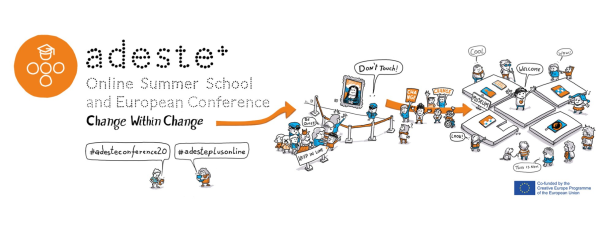
November 2020
The International Agent reflects on the many cultural perspectives, views and types of practice that enriched the Adeste+ Conference and Summer School.

October 2020
Sallyanne Flemons, North East Family Arts Network Ambassador, talks bridging the deepening divide in the North East’s culture offerings for families.

October 2020
The Audience Agency has been awarded £324,000 as part of the Government’s £1.57bn Culture Recovery Fund (CRF) to help face the challenges of the coronavirus pandemic.

October 2020
What value does culture have to society? Take part in 10 days of free events this November, hosted online by @valuingculture

October 2020
Recently, Learning & Participation Consultant Ashleigh caught up (virtually) with Lucy Turner, Early Years Producer at The Whitworth Art Gallery.

October 2020
Researchers from The Audience Agency embark on a new COVID-19 Cultural Engagement Population Study as part of a wider research project in collaboration with the Centre for Cultural Value and Creative Industries Policy and Evidence Centre.

August 2020
One of the interesting aspects of the COVID-19 pandemic crisis has been the way that data has moved centre stage.

August 2020
The Audience Agency’s unique Audience Finder system is attracting interest around the world and is now being used in Norway and Canada.

August 2020
Amidst the difficulties of the last few months, The Audience Agency has been able to continue most of its international work, albeit in different ways and with changed perspectives.

August 2020
The Adeste+ conference series will continue online this summer, taking place every Monday from August 31st...

August 2020
We've gathered a short summary of some of the key things we've learned through the first few months of our Bounce Forwards programme.

July 2020
This new project aims to discover new ways to gather audience data for non-ticketed visual arts organisations.

July 2020
A roundup of interesting insights and useful resources, beyond The Audience Agency's own work, from Learning and Participation lead Lucie Fitton.

July 2020
Our second blog on how to increase your audience engagement with babies and their families

June 2020
This month we are delighted to share a blog written by one of our Young Evaluators, Rumaisa.

June 2020
Our experience of using this tool as part of evaluating a performing arts programme with children and young people.

May 2020
Including... updates to Twitter threads, 2020 Digital Attitudes report and a party over Google Docs.

May 2020
The Audience Agency is delighted to be a leading partner in the growing WeWillRecover initiative designed to help organisations get back on track during these unprecedented times.

May 2020
Define. Diversify. Develop. This 3-D approach to working with volunteers will ensure that your volunteer programme adds value for everyone involved, says Lucie Fitton.

March 2020
ACE announces its emergency response package, including advanced funding for NPOs.

March 2020
The Audience Agency remains open for business and fully operational.

March 2020
Learning more about the RSA Evidence Champions Network: a Q&A with Aidan Daly, Creative Learning and Development Coordinator

March 2020
Working with the Barbican to gather insights into what young people want from their membership in future.

February 2020
Ashleigh discusses, from first-hand experience, how ‘family friendly’ and ‘baby friendly’ venues aren’t always the same thing.

February 2020
Golant Innovation and The Audience Agency are overjoyed to see the Digital Culture Compass launch this week.

February 2020
Several participants from the Connecting Audiences Twin Track Programme in the UK took part in the Bilbao Winter School in November 2019.

February 2020
Asset is researching theatre audiences in five European cities: Zagreb, Vienna, Sofia, Prague and Helsinki. The project will result in a world-first segmentation of those audiences.

February 2020
The International Agents have been working on a variety of project since the last bulletin. Here are a few news updates.

February 2020
A roundup of news and opportunities from our international partners.

February 2020
One of the factors that The Audience Agency needs to assess as part of its brief to evaluate Galway 2020 European Capital of Culture is ‘Europeanness’. That is, how far does G2020 have an effect on the way that participants and audiences think about Europe?

February 2020
Call for participation in the ADESTE+ Summer School and European Conference in Rijeka, Croatia, is now open.

December 2019
The Audience Agency (TAA), BBC, The Space, Nesta and others have joined forces over the past 18 months, exploring ways to help improve understanding of digital metrics.

November 2019
A quarterly roundup of interesting insights and useful resources, beyond The Audience Agency's own work, from Learning and Participation lead Lucie Fitton.

November 2019
The Audience Agency, with partners Social Value UK and Mandy Barnett Associates, brought together representatives from over 40 cultural organisations to discuss how to measure social impact.

November 2019
How you can support more young people from working class backgrounds into the cultural workforce.

November 2019
Penny Mills (Chief Consultancy Officer) led a recent project with BIFA (British Independent Film Awards) to learn about under 30s' relationship with independent film.

November 2019
Reflections of Beatfreeks Brum Youth Trends 2019, a report that aims to bust myths about young people and their attitude to culture.

November 2019
Maya Sharma, Diversity Lead, discusses viewing our local engagement work through an international lens.

November 2019
The Audience Agency has been participating in a number of engagements around the world; meeting, contributing and learning as they go.

November 2019
Artist Founder Director of ArtsGene, one of the local organisations supporting Barra' Culture, reflects on what becoming a CPP will mean for the local community.

November 2019
The first Adeste Plus Summer School and Conference took place in Lisbon Portugal during September 2019 with over 300 participants debating new approaches to audience development.

October 2019
Congratulations to Mercury Theatre in Colchester for winning the 'Excellence in Inclusivity' award

September 2019
Including... 3D selfies, practical guidance for Mailchimp users and marketing data benchmarks.

August 2019

August 2019
Maya Sharma shares her learning about how arts, culture and creativity can boost science capital and increase STEM participation for under-represented groups.

August 2019
Reflections on practice and evaluation from poet and writer Louisa Adjoa Parker.

August 2019
In practice reflections about collective community memory and stakeholder balancing, from a community consultation for Hornsey Town Hall Arts Centre.

August 2019
Anya reflects on her recent work evaluating CELL – a STEM learning and dance project with Key Stage 2 pupils.

July 2019
Whilst it is crucial to be able to report successes and failures back to funders, the value of evaluation goes far beyond demonstrating money well spent.

July 2019
Jonathan Goodacre discusses some of the core arts funding streams to emerge from Europe and their role in driving forward recent innovations in our field.

June 2019
The Audience Agency embarks on a new partnership with Activity Stream, bringing together two organisations with a mission to help arts organisations implement better decision-making using data.

June 2019
The place in which a cultural organisation finds itself can determine how it thrives, survives or even dies, but many organisations are now taking the lead in helping places reinvent themselves. Anne Torreggiani explores the rise of place-shaping.

May 2019
Research Assistant, Sophie Hobson, reflects on the particularities and similarities of creating participatory research experiences that are accessible for people with autism.

May 2019
Would you value an easy-to-understand report that presents a clear view of the schools you are engaging?

May 2019
Maya Sharma, Consultant, Diversity and Inclusion, discusses new guidance from the Forestry England on how to engage families and communities with wild spaces through arts.

February 2019
Our agents talk full-family approaches to engaging kids with disabilities and the value of intergenerational learning.

February 2019
Our newest Junior Consultant, Kerry, talks toolkits and tips for best engagement practice with Deaf and disabled audiences.

February 2019
A tick list of top tips for making sure you’re getting the most for your money when putting together a brief.

December 2018
How organisations are rethinking their assumptions about disability.

December 2018
A spotlight on Great Place Lakes and Dales.

December 2018
A practical positive action recruitment resource from the British Museum.

November 2018
The Audience Agency is working as part of an EU Commission funded project to enable small and medium scale organisations to get as much out of their data as big businesses.

November 2018
We've pulled together some key observations about how arts organisations can best engage and serve school audiences.

October 2018
Ashleigh reflects on Beatfreeks' 2018 Youth Trends Report and Summit and what she learnt from young people from Birmingham
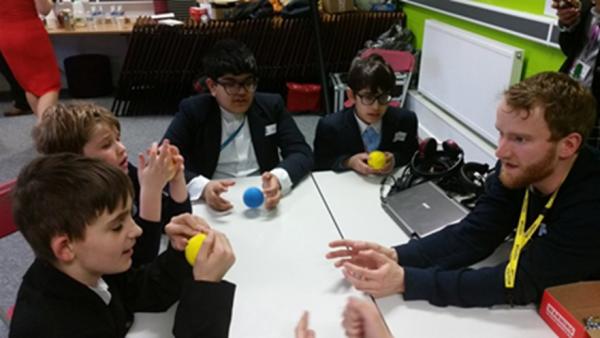
October 2018
Maya Sharma shares her experience of evaluating an engagement project with blind and visually impaired audiences

September 2018
Be part of a fully funded, innovative Audience Development Training Programme, the first of its kind and open to arts professionals across the UK.

August 2018
The Audience Agency CEO, Anne Torreggiani, lays out her plans for bigger better sector support and invites collaboration with fellow Sector Support Organisations.

August 2018
The Audience Agency and Family Arts Campaign are joining forces to help understand, embrace and engage family audiences.
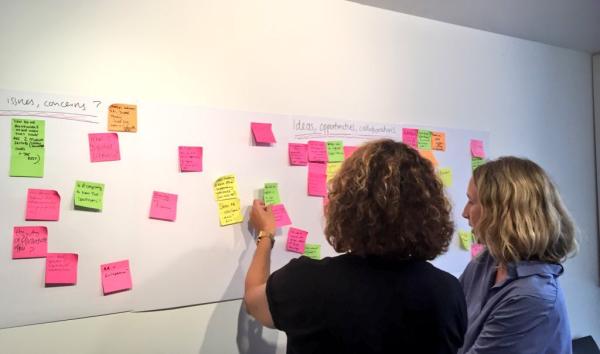
August 2018
Culture 24, Collections Trust and The Audience Agency are working together to support the museums sector with a united front.

July 2018
Inspired by her recent work with the Wellcome Collection's youth teams, Ashleigh Hibbins walks us through her tried and tested tips to engaging young people with evaluation.

July 2018
“Experiencing culture that is live and unique to a specific public space reminds us of the value of enjoying something together.”

June 2018
The process of decision-making should include hard evidence, so why do some arts workers seem determined to avoid the data that provides it, asks Patrick Towell.

June 2018
Ashleigh Hibbins and Maya Sharma share their recent learning around disabled access, audiences, artists and art.

May 2018
Lucie Fitton and Gabrielle Young discuss great ideas that were generated at the recent Young people in the Arts event

April 2018
An interview by Lucie Fitton, Head of Learning and Participation, with Lilian Cooper.

April 2018
Maya discusses the recent evaluation of Cheshire East Council's SHIFT programme, where creative and digital activities were used to bring about inter-generational learning.

February 2018
Maya reflects on a recent workshop hosted by the Centre for Critical Studies in Museums, Galleries and Heritage at Leeds University

January 2018
Katie Windsor discusses recent audience research work that she has undertaken with The Mosaic Rooms

December 2017
Our agents predict what may be in store for our sector in 2018...

December 2017
Our top takeaways from the ENGAGE 2017 conference…

October 2017
Lucie Fitton writes about her experience as Course Leader for the British Council’s Cultural Skills International Museums Academy in Greece.

October 2017
Engaging young people with libraries and spoken word...

February 2017
Thoughts and advice on how we can engage better with young people.

December 2016
Katie Windsor takes a look back at 2016 through pictures...

December 2016
Top Tips for delivering international cultural learning projects...

October 2016
Read our advice on how to make your survey collection easier

October 2016
Supporting participants to become independent attenders...

October 2016
Tips for effective ways to engage visually impaired audiences with theatre...

October 2016
How can a more inclusive leadership style increase diversity in our audiences?

August 2016
How to create and increase diverse audiences for disability arts...

August 2016
Top tips for engaging participants and volunteers in getting audience feedback...

June 2016
Dispelling some of the obscurity around engaging school audiences

June 2016
How much do arts in unusual spaces enhance young people's engagement?

June 2016
How much do visitors engage with co-produced content?

April 2016
How collaborating with artists can add value to research and evaluation...

April 2016
Top tips for engaging with families...

April 2016
Highlights from the Our Museum, Communities at the Core event...

April 2016
Tips for venues to provide access information for Deaf and disabled people.